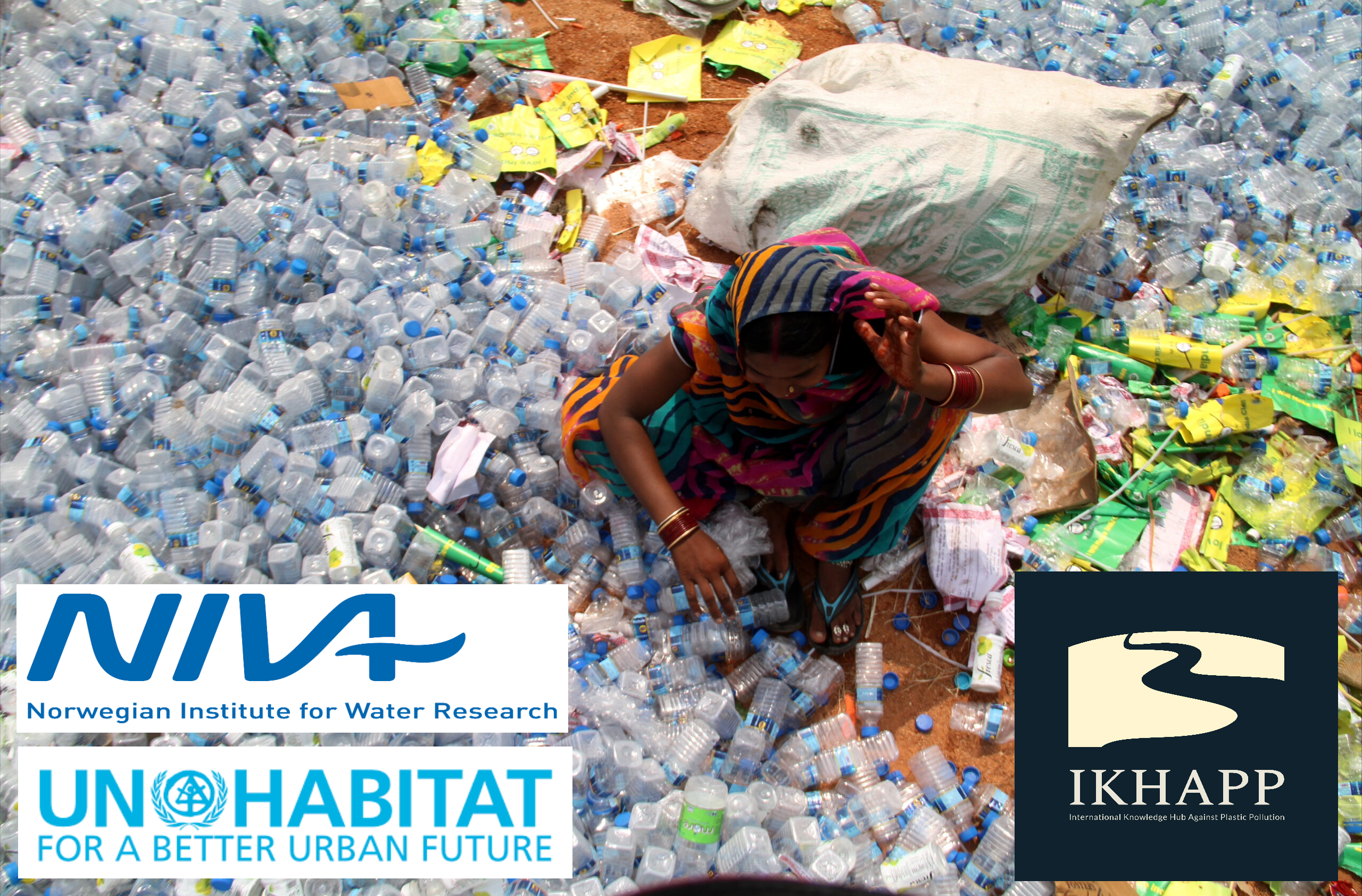How a global instrument to end plastic pollution can enable a just transition for the people informally collecting and recovering waste
 A new report titled “Leaving no one behind: How a global instrument to end plastic pollution can enable a just transition for the people informally collecting and recovering waste” by the United Nations Human Settlements Programme (UN-Habitat), the Norwegian Institute for Water Research (NIVA) and supported by IKHAPP, highlights the role of the more than 15 million people informally collecting and recovering solid waste globally to end plastic pollution.
A new report titled “Leaving no one behind: How a global instrument to end plastic pollution can enable a just transition for the people informally collecting and recovering waste” by the United Nations Human Settlements Programme (UN-Habitat), the Norwegian Institute for Water Research (NIVA) and supported by IKHAPP, highlights the role of the more than 15 million people informally collecting and recovering solid waste globally to end plastic pollution.
Written by Emmy Nøklebye, NIVA.
- The report was launched 22. november 2022. Read more about the event here.
The report identifies that a just transition of the informal waste and recovery sector (IWRS) entails designing and promoting the transition towards the sustainable production and consumption of plastic in a way that is fair, inclusive, and equitable.
This is about generating and preserving stable and decent jobs, paving the way for a waste management system that leaves no one behind. The preparation of the report was supported by IKHAPP.
Informal workers contribute to cleaner communities and public health
The informal waste and recovery sector represents waste pickers, informal waste collectors, sorters, and intermediate and apex traders, as well as other actors working informally with recovering waste.
Conservative estimates suggest that the IWRS consist of 15 million people, recovering up to 58% of the recycled waste globally. However, there are large knowledge gaps surrounding the scale, recycling capacity, and functioning of the IWRS, which is a challenge for developing targeted and sustainable pollution reduction strategies that build on existing informal waste management infrastructure.
Despite these knowledge gaps, evidence clearly shows that the informal waste and recycling sector significantly contributes to cleaner communities, protects public health, reduces greenhouse gas emissions, and saves waste management costs for municipal governments.
At the same time, informal waste and recovery workers often bear the social and economic costs of pollution and mismanaged plastic waste. Workers are often exposed to severe occupational and health impacts and lack access to public social welfare schemes, including health care, insurance, and pension plans.
How a global instrument can contribute to a just transition
A just transition involves recognizing and mitigating these livelihood risks, by forming inclusive policies and interventions, focusing on integrating informal sector workers in the process of upgrading municipal solid waste systems, while enabling safer working environments and developing social security systems and protection that is accessible to all.
The negotiations towards a global instrument to end plastic pollution could enable a just transition for informal waste and recovery workers by acknowledging their contribution to reduce plastic waste. The informal waste and recovery sector consists of skilled and experienced individuals and established recycling networks.
It is imperative to develop sustainable downstream solutions with these existing systems, and that representatives from the informal sector actively participate in the negotiations process. Financial resources could enable participation in the negotiation process, relevant capacity building and training activities, and baseline assessments and monitoring towards a just transition.
A global instrument to end plastic pollution could specifically address the informal waste and recovery sector in a separate provision or article of the convention text.
A working group could be established to focus on a just transition, including core members from the informal sector and local governments. National Action Plans could also be considered to particularly target the integration of the informal waste and recovery sector, including baseline assessments and monitoring towards a just transition.
Guidelines and toolkits could be developed to support a just transition, building on existing guidelines for environmentally sound management of waste in the informal sector, complemented with targets for social protection, decent work, and income stability.
Negotiations about to start
The report highlights that regardless of approach informal sector integration, it is imperative that human and workers’ rights are at the core of relevant measures and approaches, and that informal sector representatives are involved in the development, implementation, and assessment of such initiatives.
These are key considerations to leave no one behind as the negotiations towards a global instrument to end plastic pollution officially kicks off 28. November, but they are also basic elements of promoting a just transition in local and national policies that aim to integrate informal waste and recovery workers as part of broader pollution reduction strategies.